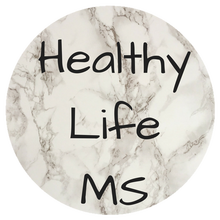The MS Trust has released some general tops on improving sleep quality. Sleep quality can often be improved by adhering to a regular routine of helpful habits, or 'good sleep hygiene':
There has been much comment in the popular press on research emerging from the US stating that blue light from technology (eg phones, laptops and the TV) can keep you awake by keeping your brain in a constantly active state. These were published as opinion pieces with many discussion points for consideration. The NHS standpoint is that no causal link has been found between devices emitting blue light and sleep problems (ie that one causes the other) but the researchers publishing these pieces are respected scientists with valid theories and until a causative link is published we should draw our own conclusions. Link to the statement and research can be found in the sources below.
If you are struggling with sleep challenges, do consult your doctor or MS nurse - there are many options available that could help you.
- try to stay as physically active as possible during the day
- allow plenty of time to wind down before bed
- avoid getting overtired by doing too much; being too tired can - conversely - make it more difficult to fall asleep
- try to get some daily exposure to sunlight but avoid bright lights in the evening
- avoid unnecessary stress or stimulants (eg caffeine, alcohol, chocolate) in the later afternoon and evening
- keep to the same nightly ritual every day of the week; ie go to bed at the same time
- establish a nightly routine which can include, for example, relaxation, a warm milky drink or taking a warm bath
- only use the bedroom as a place for sleeping not for activities like watching television or working
- avoid getting too hot or cold in bed
There has been much comment in the popular press on research emerging from the US stating that blue light from technology (eg phones, laptops and the TV) can keep you awake by keeping your brain in a constantly active state. These were published as opinion pieces with many discussion points for consideration. The NHS standpoint is that no causal link has been found between devices emitting blue light and sleep problems (ie that one causes the other) but the researchers publishing these pieces are respected scientists with valid theories and until a causative link is published we should draw our own conclusions. Link to the statement and research can be found in the sources below.
If you are struggling with sleep challenges, do consult your doctor or MS nurse - there are many options available that could help you.
Sources:
MS Trust (2014) A-Z of MS/sleep
NHS Choices (2013) 'Do ipads and electric lights disturb sleep?' (www.nhs.uk/news/2013/05May/Pages/Do-iPads-and-electric-lights-disturb-sleep.aspx)
MS Trust (2014) A-Z of MS/sleep
NHS Choices (2013) 'Do ipads and electric lights disturb sleep?' (www.nhs.uk/news/2013/05May/Pages/Do-iPads-and-electric-lights-disturb-sleep.aspx)
